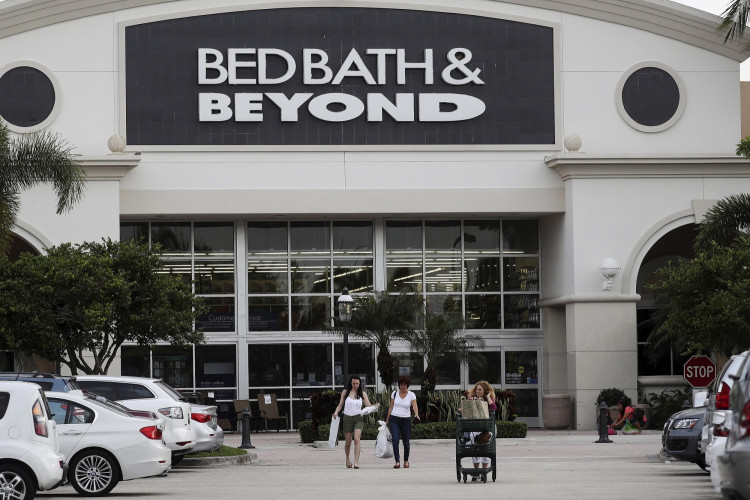United States domestic goods retailer Bed Bath & Beyond Inc reported worse-than-expected earnings for its fiscal first quarter, resulting in a dramatic drop in its share prices on Thursday.
The company's shares had tanked by a massive 23.8 percent after the retailer reported wider-than-expected losses and a massive 49 percent decline in sales for the quarter.
The company mainly attributed its weak performance for its latest quarter to the continued slump in demand caused by the coronavirus pandemic and the ensuing lockdowns and restrictions that forced it to close all of its stores. For its latest fiscal quarter, the company reported a loss of around $1.96 per share. It also reported sales of only $1.31 billion for the period, which is a 49 percent year-on-year decrease.
Bed Bath & Beyond's chief executive officer, Gustavo Arnal, noted that sales for the month of June had recovered slightly, although it was still 7 percent lower when compared to the sales for the same month last year. The executive noted that the company did experience a massive surge in its digital sales, which grew by more than 80 percent for the period.
Since the U.S .had lifted its pandemic-related restrictions, Bed Bath & Beyond has managed to reopen all of its outlets. However, the company did announce during its earnings call that it is planning to permanently close down 200 of its more than 1,460 outlets. The company expects to realize annualized savings of around $250 million to $350 million from the plan to close a portion of its retail stores.
Analysts have remained positive about the company's future prospects and its eventual recovery. Wedbush analysts stated that Bed Bath & Beyond's bounce-back rate is much sharper when compared to other department stores and retailers that have since reopened.
The company has remained relatively liquid, announcing that it had about $1.2 billion in cash and investments at the end of its latest quarter. It also added that it was able to acquire an additional $850 million from a three-year asset-based revolving credit facility, which it had closed last month.
While most had remained positive, some analysts are more skeptical about the company's future prospects. Analysts at UBS pointed out that the company was able to curtail some of its losses due to the temporary demand in the home category as people remained indoors. However, the demand will likely be short-lived and the company will likely still be facing immense financial pressures in the coming months as it tries to get back on its feet.





